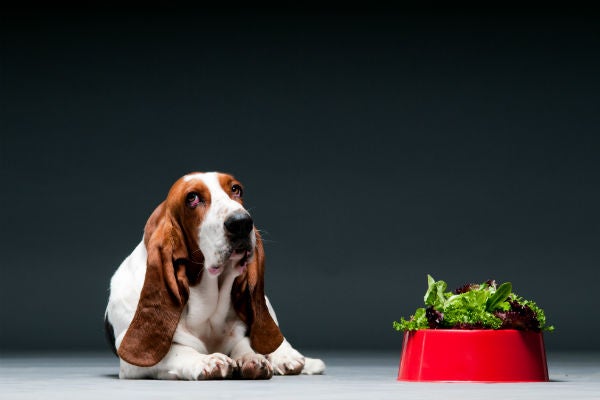Kale appears in health foods, smoothies, and salads, and is believed to have numerous health benefits for people. But is kale safe for dogs?
Is Kale Safe for Dogs?
Kale can cause medical problems for dogs. The leafy green contains several potentially harmful natural compounds, including calcium oxalate and isothiocyanates.
Calcium oxalate can cause health issues such as kidney and bladder stones. These issues usually resolve with veterinary treatment, but are a good argument against feeding kale ribs to dogs as a tasty treat. Dogs that are prone to kidney or bladder stones should avoid other foods with high calcium oxalate contents. These include spinach, beet greens, roots of beets, Swiss chard, collards, parsley, collards, leeks, quinoa, okra, and, of course, kale.
Isothiocyanates, which are also found in broccoli, pose another problem. Though isothiocyanates have been associated with a lower risk for cancer in humans, in dogs, they can cause mild to potentially severe gastric irritation. Dr. Jerry Klein, chief veterinary officer for the AKC, states, “Broccoli is considered safe for dogs if the total amount ingested is less than 10 percent of their daily intake. Over 25 percent may be considered toxic.” Since broccoli and kale have similar levels of this compound and are from the same vegetable family, we can assume that while kale could be safe in small quantities, it should not be a regular treat.

Kale can also interfere with thyroid function if fed on a regular basis, especially to dogs with hypothyroidism, who could could suffer medication interactions. You may want to discuss other possible human food-related medication interactions with your veterinarian prior to feeding table scraps to your dog.
My Dog Ate Kale. What Do I Do?
If your dog eats kale, the best thing you can do is monitor them closely for signs of intestinal upset or kidney and bladder stones. Vomiting, diarrhea, difficulty urinating, or a change in urination habits are all signs that your dog could be suffering from a condition such as bladder stones that requires veterinary attention.
A small amount of kale is probably harmless, but not all dogs react the same way. Your dog’s size also plays a role. For instance, the amount of kale your Labrador Retriever can safely eat without side effects is much larger than the amount your Yorkshire Terrier can consume. You can always call your veterinarian with any concerns you may have.
Is It Okay for My Dog to Eat Kale?
While in most cases, feeding occasional, small-to-moderately-small amounts of kale to dogs won’t cause any damage, some veterinarians may caution against feeding kale as a treat or as a part of a homemade diet, especially if there are underlying medical issues or concerns.
There are plenty of green alternatives for your dog to snack on that don’t pose any potential health problems in small quantities. For example, green beans and cucumbers are safe for most dogs, and your veterinarian can provide you with more information about healthy treats and homemade diets.
The post Can Dogs Eat Kale? appeared first on American Kennel Club.



1 Comment
Recommended Comments